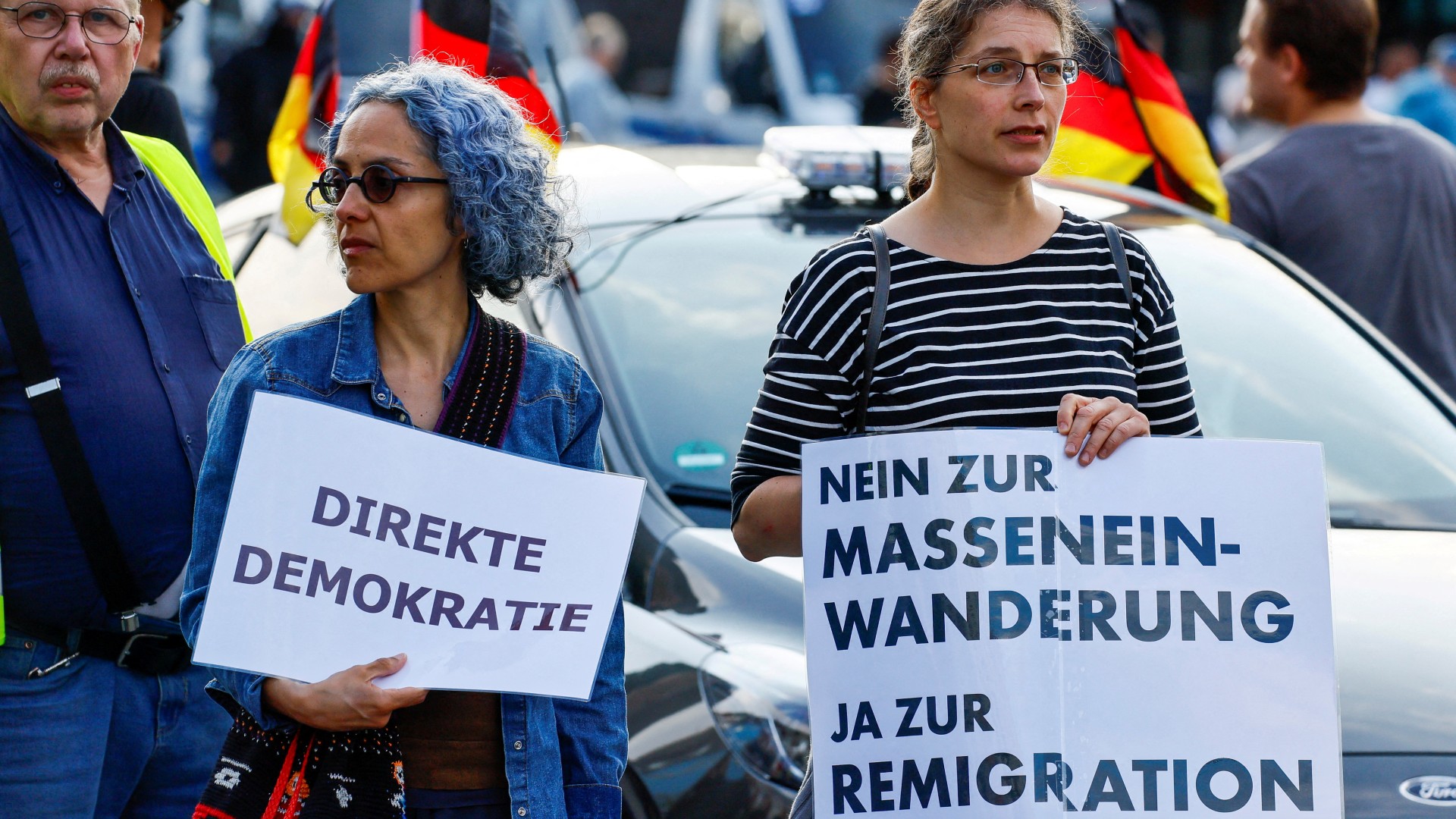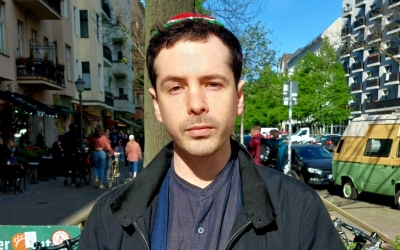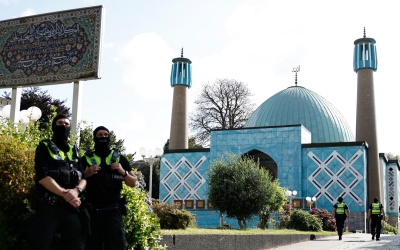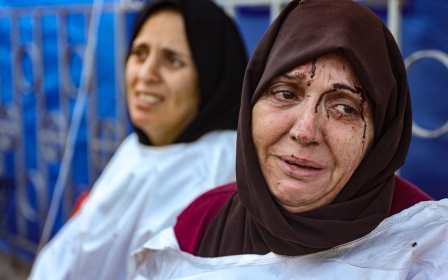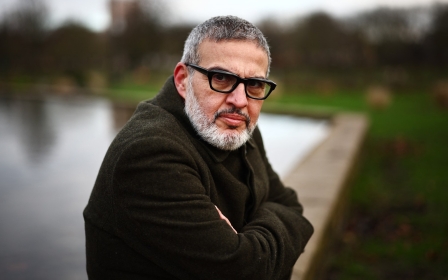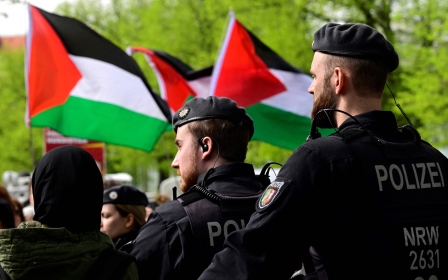Germany: Deadly knife attack in Solingen sparks anti-immigration vitriol
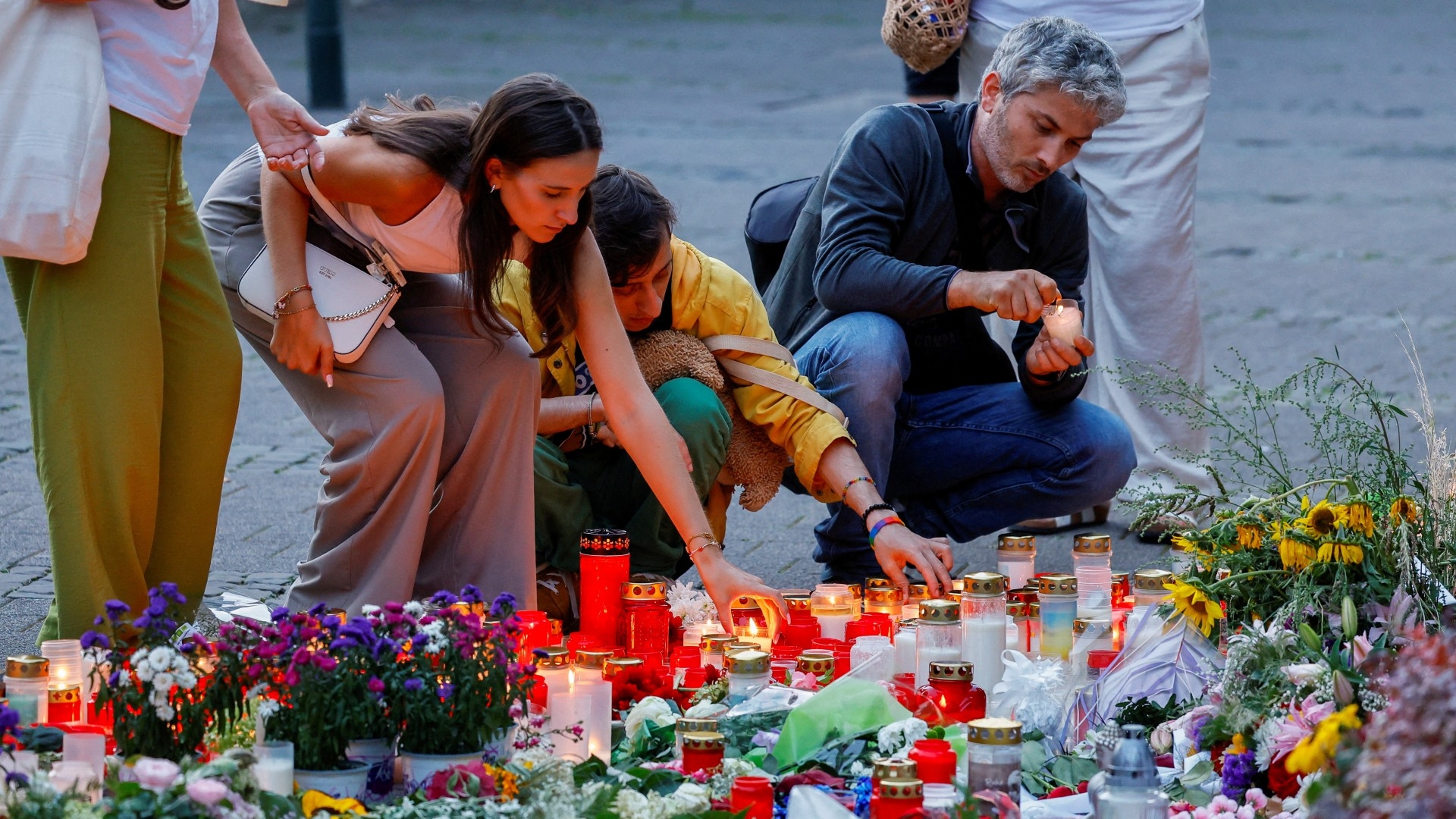
Last Friday's deadly knife attack in the German city of Solingen has caused an outburst of anti-immigration sentiment among German politicians.
At a street fair in honour of Solingen's 650th birthday last Friday, a refugee with suspected ties to the Islamic State (IS) group went on a knife rampage, killing three people and wounding eight others.
The suspect, 26-year-old Syrian national Issa Al H, turned himself in to the police and admitted to the crime. He was remanded in custody, prosecutors said in a statement on Sunday.
The attack was claimed by IS, according to the group’s Amaq news site, but the claims are yet to be verified.
While the political reverberations began immediately, the incident also comes ahead of key regional elections this coming Sunday in Saxony, Thuringia and Brandenburg, three large eastern German states.
New MEE newsletter: Jerusalem Dispatch
Sign up to get the latest insights and analysis on Israel-Palestine, alongside Turkey Unpacked and other MEE newsletters
In all three states, the Alternative for Germany (AfD), a party known for its staunch anti-migration and - in part - right-wing extremism could become the strongest force.
The attack in Solingen spurred fears that it would play into the hands of AfD politicians and right-wing voters on Sunday.
Speaking to public broadcaster ZDF on Saturday, leader of the AfD Alice Weidel demanded an "immediate ban on immigration, admission and naturalisation for at least five years".
During an AFD event in Thuringia a day after the attack, Bjoern Hoecke, arguably the most successful right-wing politician in Germany, labelled "those politicians who have always pledged tolerance and open-mindedness" as "mental arsonists who have created a fertile breeding ground for such incidents as Solingen".
But it is not only the far-right who have entertained such rhetoric.
On Tuesday, Friedrich Merz, leader of the opposition's conservative Christian Democratic Union (CDU), gave an incendiary press conference in which he advocated for a complete overhaul of Germany's immigration law, and suggested calling for a "national emergency" in reference to illegal immigration.
"We can restrict entry to asylum seekers, and if that is not possible under EU law, and Europe is not capable of changing this in the short term, then we have the right, and I believe a duty, to declare a national emergency with regards to the refugees. In this case, the national law of Germany trumps European law."
In his speech, Merz also reminded the media of the EU's Dublin regulation law, which stipulates that while there is no obligation on asylum seekers to claim asylum in the first country they enter, under certain circumstances, an asylum seeker can be sent back to the country of first arrival.
Increase in deportations
Refugees from Syria and Afghanistan are to be rejected in particular, Merz argued, as these are the most "problematic groups", he said.
Under the Geneva Refugee Convention, to which Germany is a signatory, rejected asylum seekers from countries deemed generally unsafe shall not be deported. Due to the ongoing civil war in Syria, very few deportations have been conducted from Germany to Syria in the past 12 years.
However, Germany's conservative politicians, including Merz, argue that Syria is now a safe country, contrary to evidence suggesting that Syria being "safe" is a delusion. A UN report released on Wednesday revealed that across the country, nearly 17 million people - more than 70 percent of the population - require humanitarian assistance and protection. Syria also remains the country with the highest number of displaced people globally.
Merz also advocated for a strengthening of the federal police.
Chancellor Olaf Scholz, head of Germany's traditionally centre-left Social Democratic Party (SPD), echoed the concerns.
"That is why the Federal Government will continue its efforts to further limit irregular migration", Scholz announced. Measures to do so include "above all to make repatriation even easier".
In January, the German parliament passed a bill enabling easier and swifter deportations. The number of deportations from Germany has been steadily increasing in recent years. In the first half of 2024, the number of deportations in Germany increased by more than a quarter compared to the previous year. In 2023, around 16,400 people were deported, the highest number since 2020.
Even Scholz's coalition partner, the neoliberal Free Democratic Party (FDP), is signalling a willingness to compromise, after having been reluctant to change the law.
"The FDP is prepared to make cross-party efforts to consistently implement new realism in migration at federal and state level," FDP party leader Christian Lindner told reporters. Merz's proposals "are very much in line with those of the FDP", he added.
Political myopia
In an interview with the newspaper Die Zeit, the domestic policy spokesperson for the Green Party, Lamya Kaddor, accused Merz of "hasty and thoughtless demands" and "shortsightedness".
"A lot of Muslims and people with a migration background say that they are now afraid. Afraid of becoming victims of an attack themselves. And also afraid that the same debates will start again. That they will be stigmatised and placed under general suspicion," Kaddor said.
'Most of those who have recently carried out or planned attacks were not smuggled in'
- Lamya Kaddor, spokesperson for the Green Party
When a person with a migration background commits a serious crime, Kaddor continued, a mechanism is triggered: "politicians formulate hasty, thoughtless demands without considering that they are thereby making an entire group jointly responsible".
Merz has since retracted his demands slightly and spoken of a "de facto stop on admissions" in a paper addressed to Chancellor Scholz, after meeting with him.
Kaddor also accused politicians of a lack of knowledge of "extremist Islam" and reminded them that "violent Islamism hardly survives on letting people immigrate to countries so that they can carry out attacks there. Most of those who have recently carried out or planned attacks were not smuggled in."
Instead, groups like IS increasingly rely on radicalising young people in western countries, Kaddor argued, adding that money and resources should be spent on preventing radicalisation instead of imposing blanket immigration stops for asylum seekers.
She suggested addressing online platform operators directly in order to control the content circulating online, as well as increasing educational opportunities and involving Muslim associations.
Kaddor also warned of the threat that the far-right movement poses towards vulnerable communities such as migrants and Muslims.
Should Sunday's election see a decisive win for the AfD, Kaddor warned of a situation similar to the far-right riots that gripped the UK this month, after false claims and misinformation about the murder of three children in Southport was propagated online and by prominent politicians, leading to a spate of racist and Islamophobic mob attacks.
"The Muslim and migrant community is very afraid that we will end up with conditions like in Great Britain, that the situation will escalate and people will fight each other on the streets."
Middle East Eye delivers independent and unrivalled coverage and analysis of the Middle East, North Africa and beyond. To learn more about republishing this content and the associated fees, please fill out this form. More about MEE can be found here.


